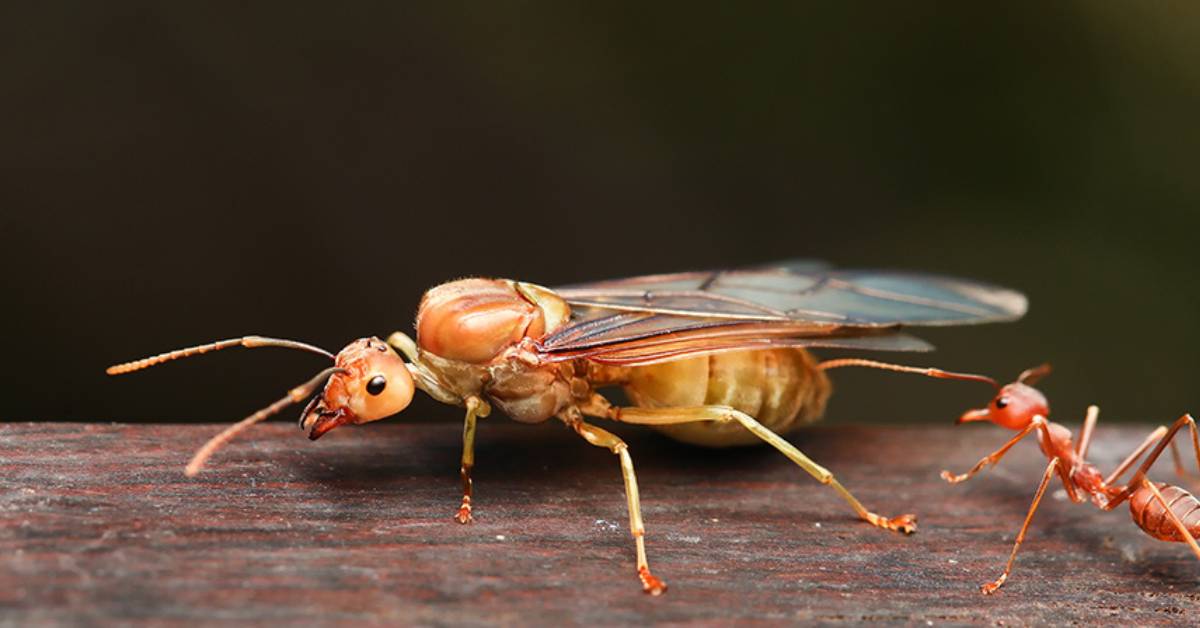Many people know that queens usually live for many years, while worker ants have shorter lifespans due to different genetic makeup and lifestyles. The secret behind the longevity of queen ants was unknown, but the researchers found the changes in the bodies of worker ants when they turned into pseudo-queens.
On 1st September 2022, a research article about the role of anti-insulin protein (Imb-L2) in the longevity of queen ants or pseudo-queens was published in Science. Claude Desplan and a few other researchers found that the queens of Harpegnathos saltator produce more insulin for egg production, but ovaries also produce anti-insulin to control the aging-related pathways.
These ants have an essential role in reproduction and egg-laying. An entire colony depends on them to maintain the population in the nest.
In addition, they do not live for only a few weeks or months as their internal signal transduction pathways support long-term survival by suppressing aging.
Influence of insulin on ants’ reproduction and longevity
Reproduction significantly influences longevity because the genes that improve the reproduction rate are also responsible for reducing the lifespan.
It is observed that the reproductive ants produce more insulin because this hormone promotes the production of eggs, which is a high-metabolic activity and requires plenty of energy.
It regulates MAPK signaling pathways involved in the reproduction process and allows the reproductive ants to produce a bulk of eggs.
However, this hormone is not favorable for their survival due to its involvement in the pathways related to aging. It also regulates the Akt signaling pathways and shortens the lifespan.
The researchers have studied the negative impact of insulin on the Akt signaling pathways, which are known to promote the survival rate and growth responses.
Hyperactivation of Akt signaling pathways is related to aging in the muscle cells, so insulin is indirectly responsible for the aging and shorter lifespan.
Study on the role of anti-insulin protein in longevity of queen ants
The researchers at New York University conducted a study on Indian Jumping ants (Harpegnathos saltator) to learn about the reasons for longevity in queen ants.
It was interesting to know the reasons for their longer lifespan when the reproduction process is typically related to the shorter lifespan in other organisms.
Claude Desplan, Hua Yan, Long Ding, Alexandra Leibholz, and a few other researchers conducted research on the caste-switching behavior of H. saltator.
They compared the expression of genes in the brain, ovary, and fat bodies of worker ants and pseudo-queens that had switched castes in the absence of queens.
After comparing gene expression, they observed that insulin production increased in their brain. It correlated with an increase in lipid and vitellogenin, which is suitable for eggs.
They found that insulin promotes egg-laying abilities in ants, and several insulin-like growth factor signaling pathways also get activated during reproduction.
The anti-insulin protein (Imp-L2) does not affect the MAPK pathway, but this Imp-L2 leads to decreased signaling of the Akt/forkhead box O branch in the fat bodies.
They inspected the ovaries of gamergates and found 4 to 6 egg chambers with developed oocytes, while workers and revertants had 0 or 2 egg chambers with no developed oocytes.
They performed RNA sequencing of tissues involved in metabolism and reproduction and found differential expression of genes in the gamergates, workers, and revertants.
In addition, they also found differences in the size of fat bodies, as the worker’s fat body was white and bigger than the gamergates’ yellow-colored and smaller fat bodies.
On 1st September 2022, they published results in the Journal Science and shared their observations about the differences in the gene expression and metabolic processes of worker and queen ants.
Changes in the lifespan of worker ants after caste switching
The Indian jumping ants have gamergates or reproductive worker ants in their colony to ensure the continuity of their population in the absence of queen ants.
Typically, the worker ants live for only 7 months and die after completion of their lifespan, but their lifespan increases when their status or caste in the colony changes.
They can live for years after becoming pseudo-queens because their role in the colony changes. These foragers become egg-laying machinery after turning into pseudo-queens.
Accordingly, they begin to produce fertile eggs in their ovaries, and insulin production also increases in their ovaries and fat bodies.
They produce anti-insulin protein to suppress the Akt signaling pathway and increase lifespan because this pathway is involved in aging.
Their lifespan increases almost 5 times of other worker ants in the colony due to the production of anti-insulin protein in their ovaries, which leads to decreased signaling of the Akt pathway.
However, caste reversion can also occur if these pseudo-queens are placed in the colony having a queen.
They produce more insulin for egg production, but gamergates do not have to produce anti-insulin after turning into workers.
It is also observed that the lifespan of gamergates significantly decreases after reversion as their lifespan gets even shorter than the worker’s due to harsh policing by colony fellows.
Accordingly, queen ants’ lifespan also gets shorter again as they cannot live longer without the presence of anti-insulin protein in their bodies as it suppresses the aging process.
Related Articles:
Ants set budgets when facing an uncertain situation
Tiny Invasive Ants Stopping Lions from Killing Zebras in Kenya


